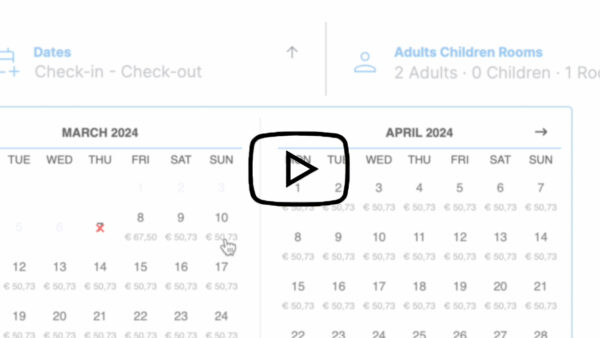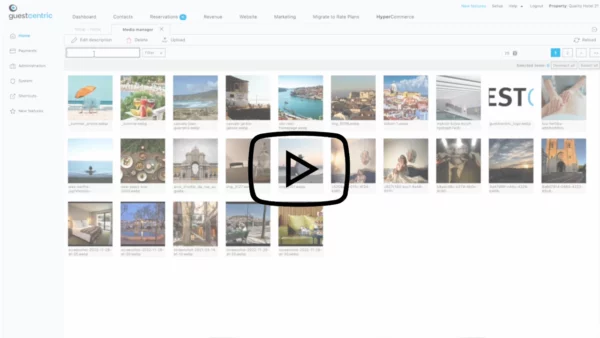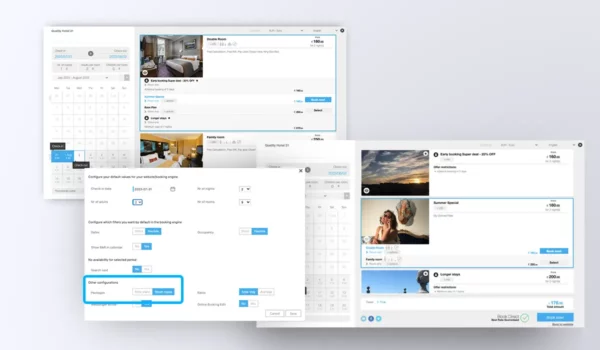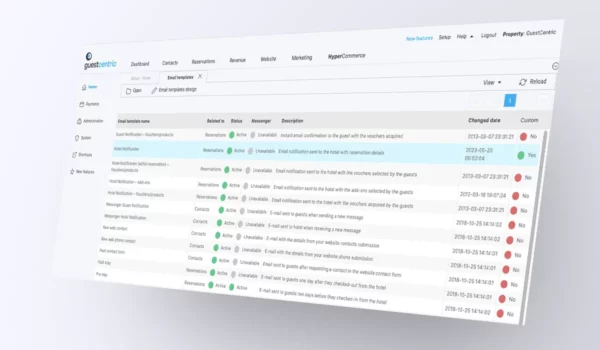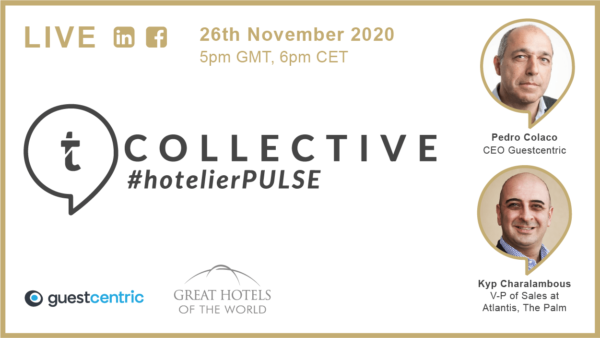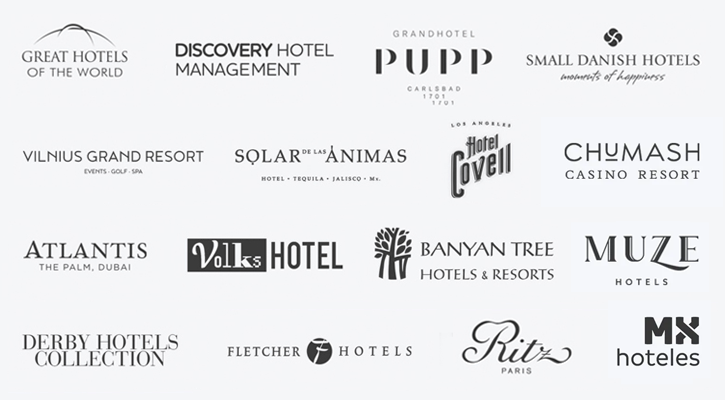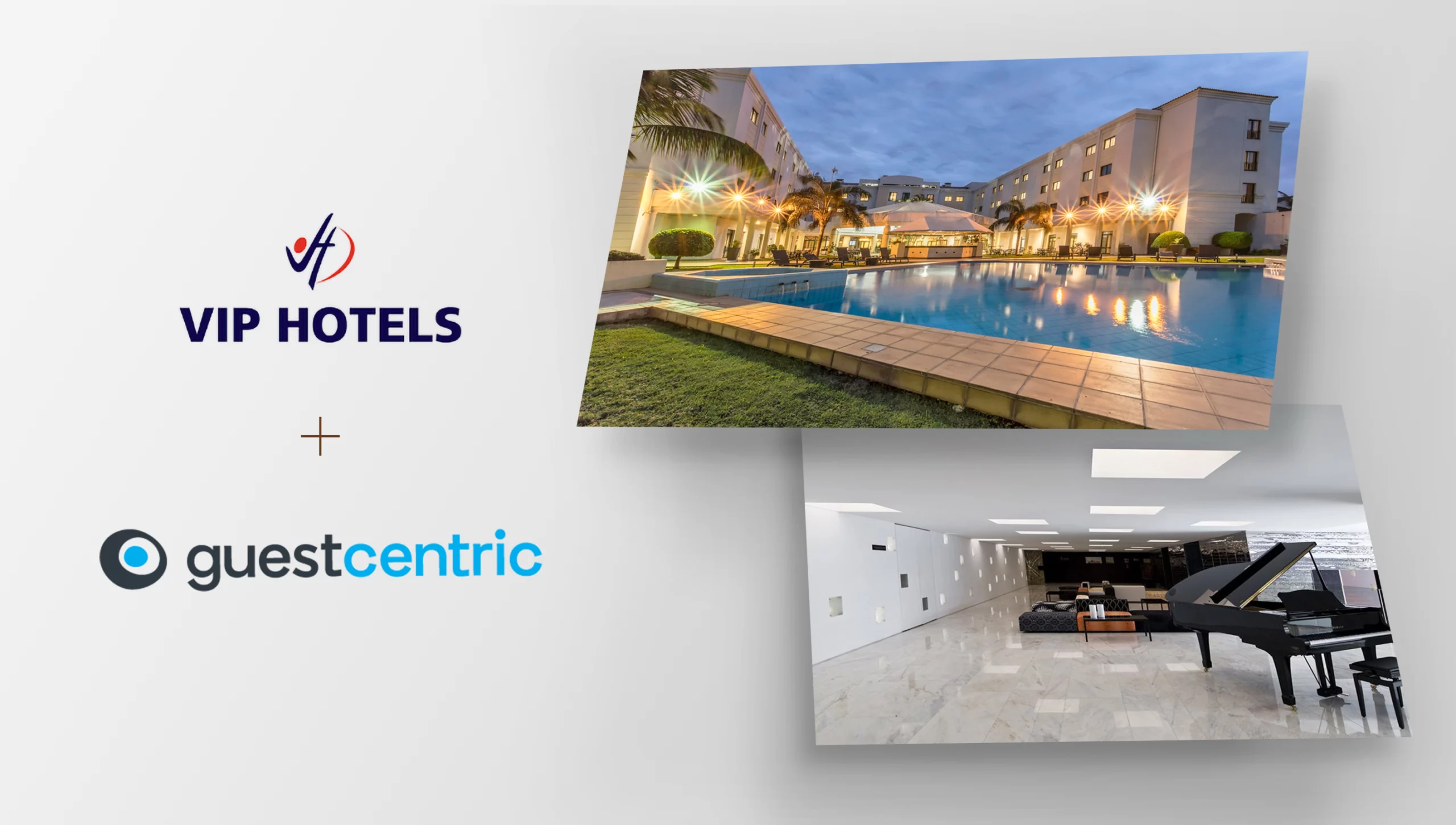Personalization vs Privacy – What do Hotel Guests Prefer?
Reading Time: 6 minutesWhether it’s booking a trip or just doing some online shopping, in today’s fast-paced world, most of us want to find and get exactly what we are looking for as quickly and painlessly as possible. At the same time, many of us also feel slightly creeped out when confronted with content, ads, or messages from complete strangers based on what we have searched for online, destinations where we have been, or topics we have discussed with friends or family.
In recent years, personalization has become a hot topic for many industries, including travel and hospitality. Many experts and articles have emerged touting the importance of offering personalized experiences and “giving consumers what they want before they ask for it”.
But, the question is, when it comes to personalization vs privacy, what do your hotel guests actually prefer? Read on to find out.
Give Guests what they Want – But at What Cost?
Thanks to technology, hotels now have the opportunity to tap into the power of guest data to create experiences tailored to each guest’s unique preferences and needs. Guests can seamlessly check into a hotel, and right off the bat, the hotel will know exactly what the guest likes – from favorite room amenities to dining recommendations.
But although offering personalized experiences can leave guests significantly more satisfied with their hotel stay, which can lead to greater loyalty and empower hotels to stand out in a sea of competition, all of this comes at a cost. That cost is data.
Ever return home from the supermarket to find instagram ads on your phone about that blender you saw in the kitchen aisle? Ever vented to someone about a singer you loathe, only to be interrupted during your favorite podcast with pesky announcements about their upcoming concert in your area? These and similar events happen to everyone nowadays, thus keeping the discussion on privacy and data protection alive and well, despite the personalization hype.
According to Pew Research Center, 81% of US respondents say that the potential risks they face because of data collection by companies outweigh the benefits. Meanwhile, the Fundamental Rights Survey in Europe shows that 55% of respondents fear criminals or fraudsters accessing their personal data, and around 30% worry about advertisers, businesses and foreign governments’ access to information without them knowing.
Therefore, using guest data to create personalized experiences might raise eyebrows for some folks. So, hotels need to be extra cautious and ensure they handle personal information with utmost care and transparency.
Here’s the Thing, Guests Value Personalization Too!
As it turns out, statistically speaking, many consumers actually want personalization of services and offers. Research by Epsilon shows that 80% of consumers are more likely to make a purchase when brands offer personalized experiences. Meanwhile, research by Adobe shows that 67% of consumers believe it’s important for brands to automatically adjust content based on their current context.
The disconnect between people’s views and behaviors around personalization vs data privacy can make most of our heads swim. On one hand, people want to protect their online privacy; on the other hand, they take actions that jeopardize it. Just consider how many times you’ve actually read a privacy policy, or blocked a website from tracking your digital movements — chances are, not often. And let’s not even get started on all the content we willingly post on public platforms such as Facebook, Instagram etc…
This is the paradox that hotels face. Although guests want personalized experiences, and even say they would abandon brands that do not tailor products and services to their preferences, they also have concerns about how companies process and use their data. So the next question is, how can hotels deliver personalized experiences to guests, whilst also respecting the online privacy and security of their guests?
How to Implement Personalization and Maintain the Trust of Your Guests
Based on everything mentioned above, it seems many consumers have no problem sharing their data, as long as they can be sure it’s to their benefit and trust companies to handle their information properly. Therefore, it’s important to strike a balance between establishing consumer trust and delivering personalized experiences. Below are 3 steps to help you get you started:
1. Balance Personalization with Privacy Efforts
To achieve this balance, hotels can focus on collecting only essential guest information. For example, if a guest feels uncomfortable with your hotel collecting and storing their sensitive data (like names, phone numbers, and addresses etc), you can prioritize gathering less sensitive data such as booking history and guest preferences.
Hotels can also combine personalization and customization. Personalization should occur behind the scenes, while customization can be driven by the guest. Depending on your hotel’s policies, consider allowing guests to select their preferred level of personalization and data sharing, enabling them to shape their own stay and experiences.
Above all, ensure that your hotel’s technology prioritizes guest privacy and security. A single data breach could severely damage trust in your brand. Implement robust security protocols, offer secure login options, display security badges on your website, and take additional measures to safeguard guest data throughout their stay. By doing so, your hotel can maintain a strong reputation for guest satisfaction and data protection.
2. Leverage Anonymous Guest Data
Anonymous data is the consumer information hotels collect that has been stripped of identifying details to protect the privacy of guests. Although more broad, this data can also enable your hotel to understand overall guest trends and preferences, thus enhancing your ability to provide personalized services such as tailored amenities and recommendations.
Below are some more specific examples of anonymous guest data:
- Personalized Room Preferences: Hotels can use anonymous guest data to understand room preferences, such as preferred bedding type, room temperature, or view. This data can be used to pre-assign rooms to guests based on their past preferences, ensuring a more tailored experience from the moment they check-in.
- Tailored Recommendations: By analyzing past stay information, hotels can offer personalized recommendations for nearby attractions, restaurants, and activities that align with the guest’s interests and past behavior. This could be achieved through targeted messages or in-room information guides.
- Customized Amenities: Utilizing anonymous guest data, hotels can anticipate guest needs and provide customized amenities before guests even request them. For example, if a guest has frequently requested extra towels or specific toiletries in the past, these can be prepared and waiting in the room upon arrival.
- Personalized Marketing Offers: Through anonymous guest data, hotels can send personalized marketing offers and promotions via email or mobile apps. Offers could include discounts on preferred room types, spa treatments, or dining experiences, enticing guests to return for another stay.
- Streamlined Check-in and Check-out: With anonymous guest data, hotels can streamline the check-in and check-out process, making it more efficient and tailored. Guests may receive a digital check-in option based on their preferences and have the option to receive their final bill via email, enhancing convenience and personalization.
Remember, it’s all about finding that sweet spot between personalization and maintaining consumer trust. You can build upon existing data to enhance your services and recommendations, giving your guests a taste of personalization without making them feel like they’re under a microscope.
3. Avoid Inappropriate Personalization Tactics that Spook your Guests
A friend once confided in me via WhatsApp about her struggles with alopecia. Not long after that, I began to receive ads for hair implants that I neither wanted or needed. As a result, rather than feel compelled to buy the product, I was left feeling spooked and irritated. Unfortunately, this seems to happen all too often to many of us, and such poorly-executed personalization efforts generally tend to alienate rather than attract consumers.
Achieving the right level of personalization in hotels is crucial, because excessive tracking of guest preferences can backfire. Striking a balance is key, because although many guests may appreciate personalized experiences, there are certain practices that may not be well-received. Not to mention, sometimes it may not even reflect the customer’s preference. Research by Accenture highlights that using consumers’ location to personalize recommendations can be perceived as “creepy.” Additionally, push notifications are often considered invasive by 74% of consumers.
Understanding your guests is essential, as opinions on personalization may vary among different demographics. Listening to your customers, seeking feedback, and measuring the outcomes of various personalization approaches can help ensure that your hotel’s personalized services align with guest preferences.
Conclusion
From boosting guest satisfaction to improving revenue, personalization can generate many benefits for hotels and ultimately lead to more direct bookings. Delivering personalized offers and experiences can set your hotel apart from the competition in a crowded marketplace. Moreover, personalization can directly impact guest satisfaction, leading to increased loyalty and repeat business. Satisfied guests will be more likely to share positive reviews and recommend your hotel to others, further boosting your brand reputation.
However, privacy concerns are a real issue, and using guest data to personalize experiences requires a delicate balance. Hotels should be transparent about their data collection and ensure that guests’ privacy is respected and protected at all times. It’s also important to remember that not all hotels can offer an extensive range of personalization options, so start with small steps and gradually expand your personalization efforts as you grow.
By adopting personalization in a thoughtful and guest-centric manner, whilst also prioritizing the privacy of your customers, you’ll be ahead of the curve and set your hotel on the path to success in today’s competitive world of hospitality and travel.


